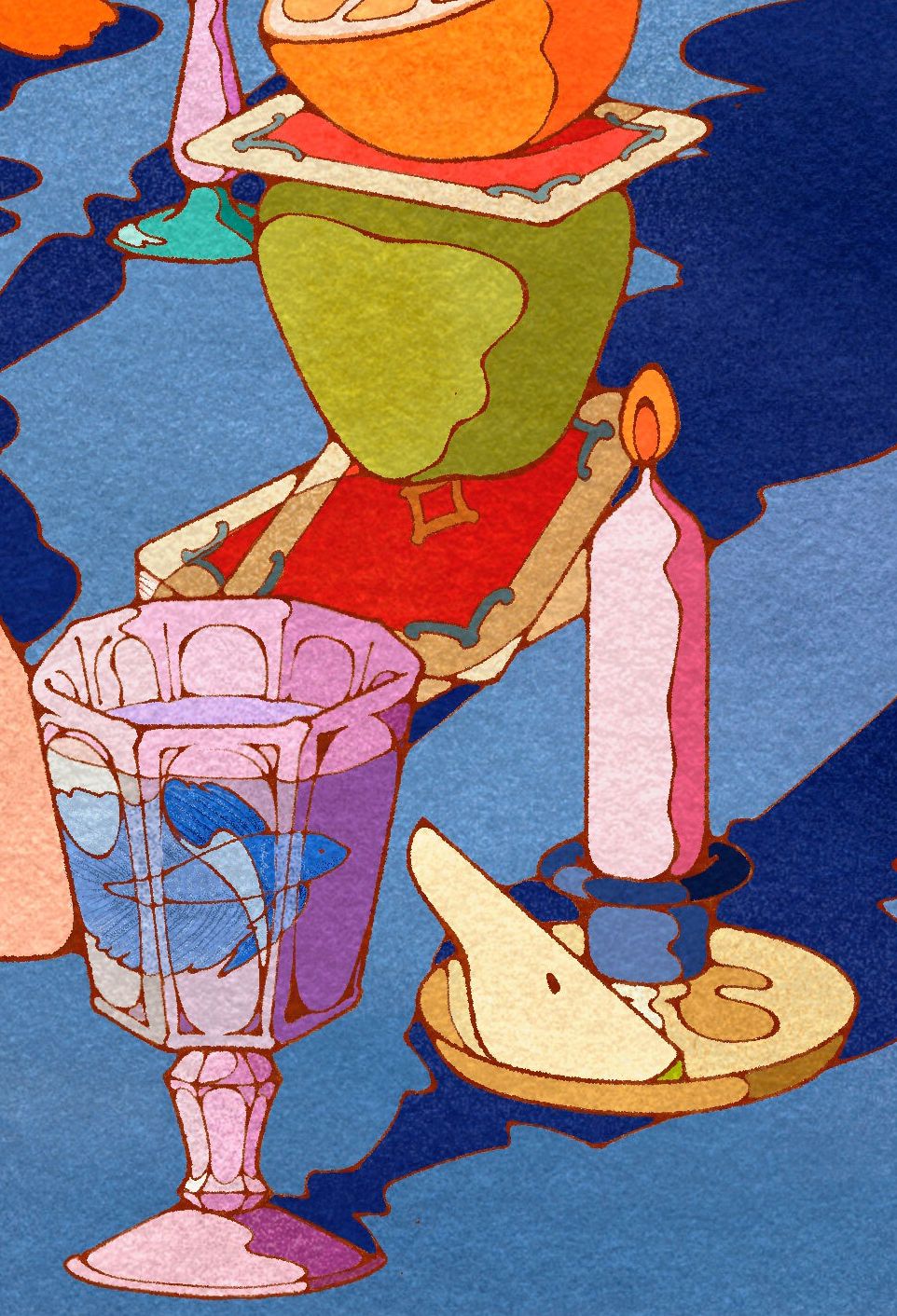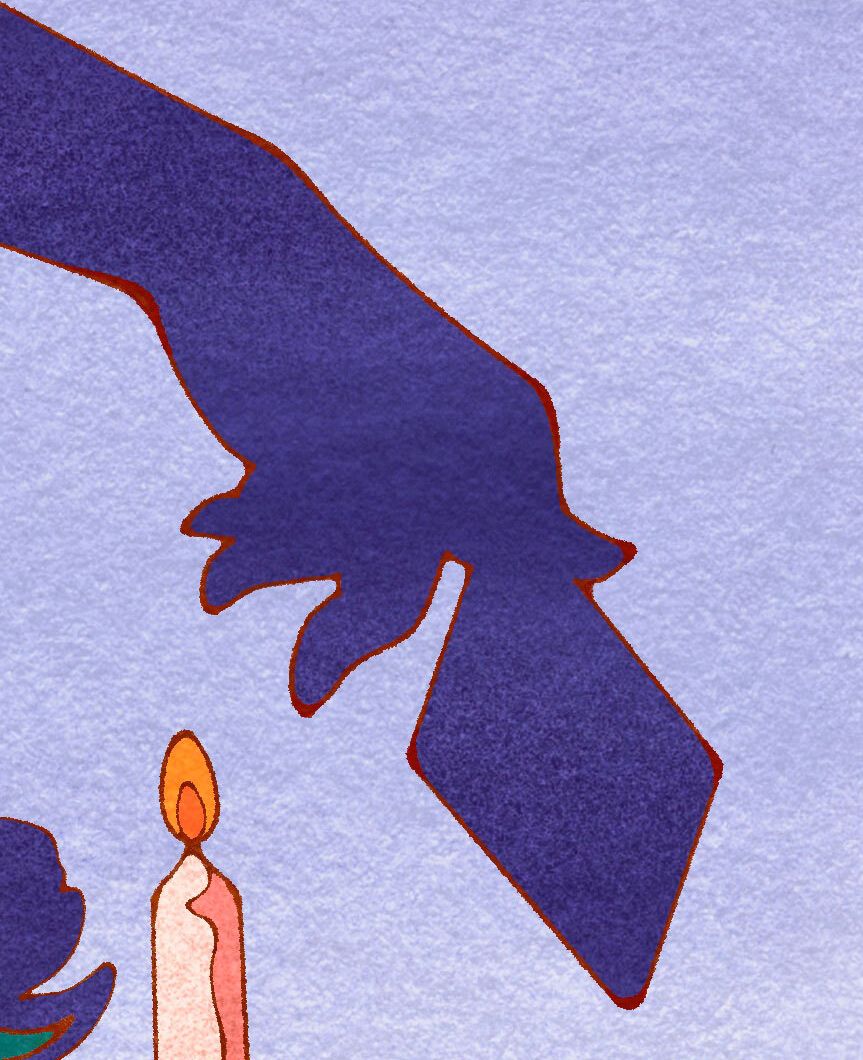The original post is located at www.elle.com
By the time the medium kicked off the online séance in late 2021, more than 120 people had signed on in hopes of making contact with the dead. One assumes that each had lost someone close to them—a parent, sibling, child—and there was a shared sense of pain, grief, and confusion. The medium told the group that if he succeeded in reaching their loved one, they should let him know in the chat.
Some people would find a mass séance, conducted via a mass video chat, impersonal, even callous. But the attendees seemed hopeful that their friend or family member could make their voice heard through the spiritual noise. They lit candles; they asked for what any of us would want. “Did he suffer?” one mom asked of her son’s drowning. “Or was it quick?”
It is difficult to describe what the loss of a family member does to a person. While some people mourn and recover, others have nightmares or develop PTSD. When a loss is particularly brutal—a suicide, for example, or the death of a child—traditional methods of coping, even extreme ones, can fail. “They torture themselves…with every single thing they might have done so that it wouldn’t have happened,” says Camille Wortman, a grief expert who works with bereaved families. And when that happens, it is not uncommon for the bereaved to call on the help of a group of strangers for solace who have what you might generously call a mixed record on honesty and ethics. They hire mediums.
Perhaps you have also seen a medium, for fun or for relief or because it’s 2023 and they are absolutely everywhere. A 2021 market analysis by research group IBISWorld found that psychic services, which includes mediums, “was one of the few discretionary industries that weathered the economic downturn,” and its 2023 analysis found revenue, growing at 1.5 percent annually over the past five years, is expected to reach $2.3 billion this year. Mediums are given starry-eyed credence all over morning news shows and streaming services. The Four Seasons in Baltimore hosted a séance at its five-star spa. Many mediums have flashy websites and long waiting lists for private readings that can cost hundreds of dollars per hour. Online group séances serve those who can’t afford or don’t want to wait for a one-on-one.
“It’s heartbreaking,” Susan Gerbic says of such séances. Gerbic is a skeptic who runs a crew of internet researchers, based all over the world, who bust mediums by creating fake Facebook profiles, attending live shows, filming inaccurate readings, and pointing out where the information likely came from (typically online obituaries and GoFundMe pages). She got into the debunking business as a hobby after reading Skeptical Inquirer magazine and attending events run by famed psychic medium disbeliever James Randi, and says she continues this work because she receives emails constantly from women (and it is almost always women) who have been retraumatized by the mediums they hired to help them grieve. The emotions Gerbic sees again and again are shame and guilt. “It’s like somebody breaks into your house and touches everything, moves things around,” Gerbic says. “That’s the feeling, that you’ve been violated.”
Wortman agrees with this assessment. She calls the work of unscrupulous mediums “a second betrayal” to parents who have lost children. “It’s horrible,” she says. “I don’t want to underestimate the impact that that can have.” But later on, she adds something I didn’t expect: She says she would like to see more people go to mediums, speculating that then the government would be prompted to fund research on the industry.
Wortman was not the only well-respected expert I encountered who admitted mediums could help people process loss, even if they weren’t telling the truth. There are studies—not great studies, but peer-reviewed studies nonetheless—that show that some people report a reduction in emotional pain after seeing a medium. One study found that 35 percent of parents who had lost a child found mediums “very helpful” in relieving grief, versus 26 percent of those who visited mental health practitioners. Wortman has seen it herself, in a client named Joan who struggled for five years with her son’s murder, and was revitalized after a single session with a medium.
How could speaking to someone who gives you a few random facts about a person you once loved help you process death? According to a theory called “continuing bonds,” people often need to maintain a connection to those they’ve lost, rather than let them go. Speaking to a loved one through an intermediary could help that. There may be additional benefits from talking openly with a group of people who have experienced similar painful life events. Visiting a medium may offer the bereaved an opportunity to apologize, or receive forgiveness, almost like playacting.
Evidence to support this idea can be found in a pattern to the types of messages mediums provide to their clients (called “sitters”): Often, mediums say the loved one still exists, that they didn’t suffer, that they still love or are watching over the sitter. “There’s no negative messages because they’re in that vibration, where they’ve left the earthly life and the ego behind,” according to a New Jersey-based medium. Another way to look at it would be that there are no negative messages because perhaps that’s not what sitters want or need.
But what about lying or misleading or repeating information found on the internet? Does that matter? “In my opinion, 85 to 90 percent of all the medium practitioners out there today cannot do what they claim,” Robert Ginsberg says. “That doesn’t mean they’re all fraudulent. Some are, but the vast majority are not.” Ginsberg is a believer, cofounder of the Forever Family Foundation, which provides support and information, as well as “evidence to support the premise that our consciousness survives past physical death,” to the bereaved. He was once more skeptical about the afterlife, but then he became someone who needed, with his entire being, to believe that people could speak to the dead after his youngest daughter, Bailey, died in a car accident in 2002. And some time after that, he came up with the idea of giving mediums a test.
Anyone can hang out a shingle offering to certify people in the largely unregulated discipline, but Ginsberg notes that no money changes hands in the foundation’s certification process, and mediums cannot pay the foundation to be listed on its website. Its test for mediums consists of an eight-page application, a 45-minute interview, and five sample readings. About 10 to 15 percent of the mediums pass. “Even for seasoned mediums, it can be very stressful,” he says.
This certification is the closest thing the psychic industry, including mediums, has to ethical governance. It’s based on the belief that some mediums can actually talk to the dead, which is, to put it mildly, in debate. Wortman would like to see real data, from a full-scale, well-funded, and serious academic research center, that shows what about mediumship is helpful, for whom, and when. She also believes it’s not going to happen. “Are you kidding? You put in a grant to the National Institute of Mental Health, you think they’re gonna fund stuff on mediums? No, they’re not,” she says.
In stories like these, people wonder which tribe the author belongs to, so I’ll admit here that I do not personally believe anyone can speak to the dead. I think if anyone found decisive proof of an afterlife, 15 new research institutions would pop up in Bethesda, Maryland, before anyone could blink. However, I also believe humans are built for storytelling, and that the placebo effect is monstrously powerful. When my best friend died in 2012, I talked to the ceiling and saw signs on the sides of trucks. When I stumbled on a sticker in my new apartment that matched my bestie’s tattoo, I felt a sense of calm and protection that stuck with me for days.
And so, even though the medium I watched conduct the online séance had the bedside manner of an old shoe, was performing for a group the size of a marching band, and probably got his information from the internet, I couldn’t be sure the grieving parents had a bad experience. Several of them ended their interactions visibly moved, crying or choked up, reassured or immersed in memories. And the mother of the man who drowned, the one who posted the video? “That’s my son,” she sobbed as the medium recounted random details about his life. “Thank you so much. Thank you.”

















